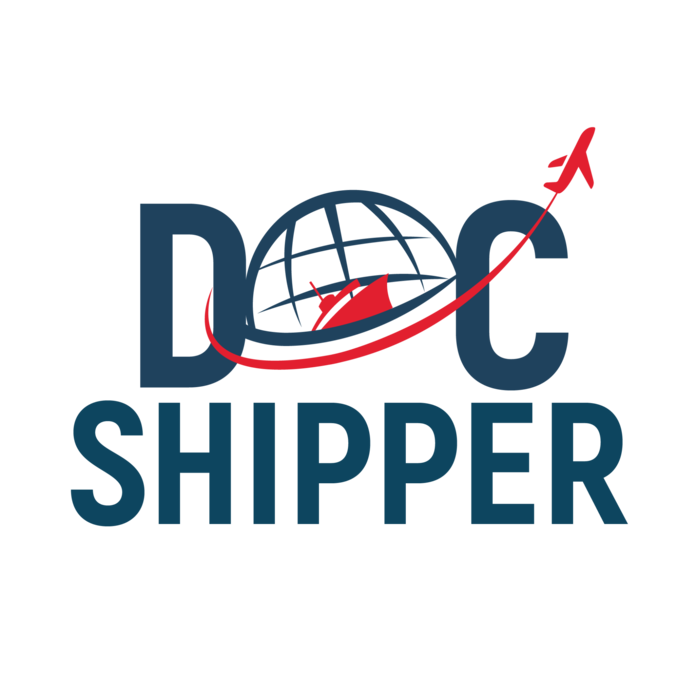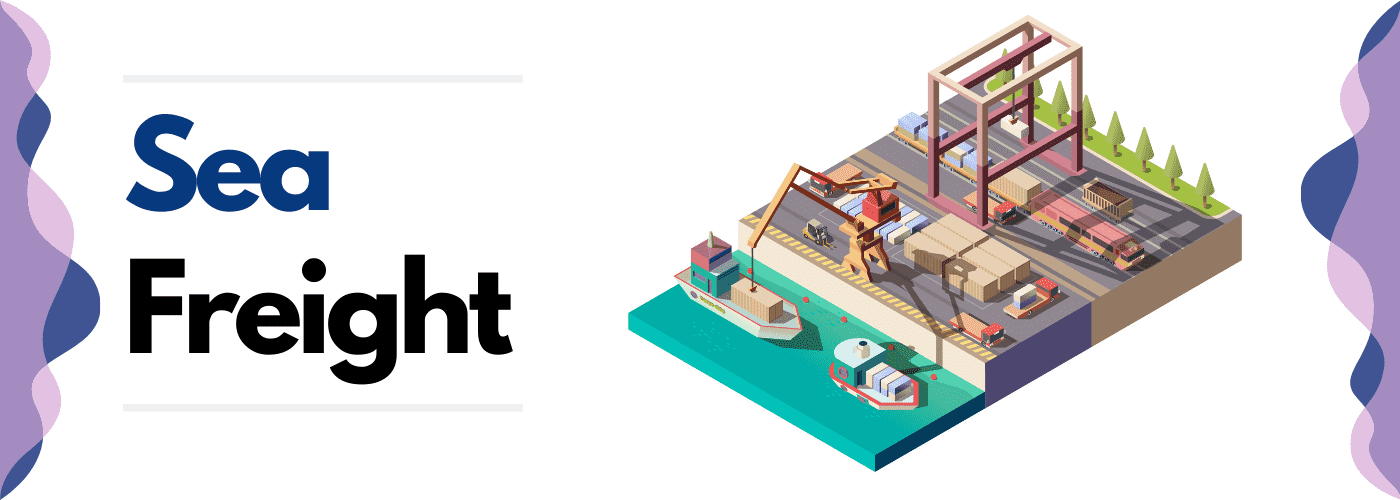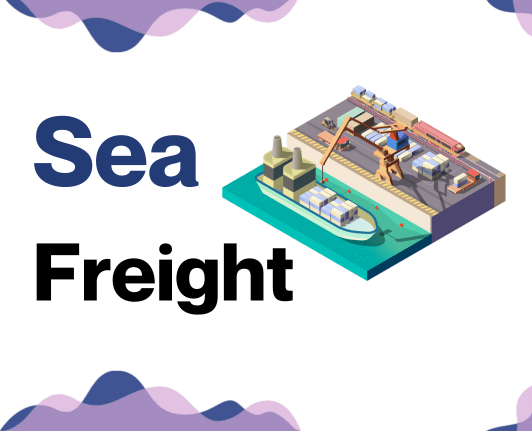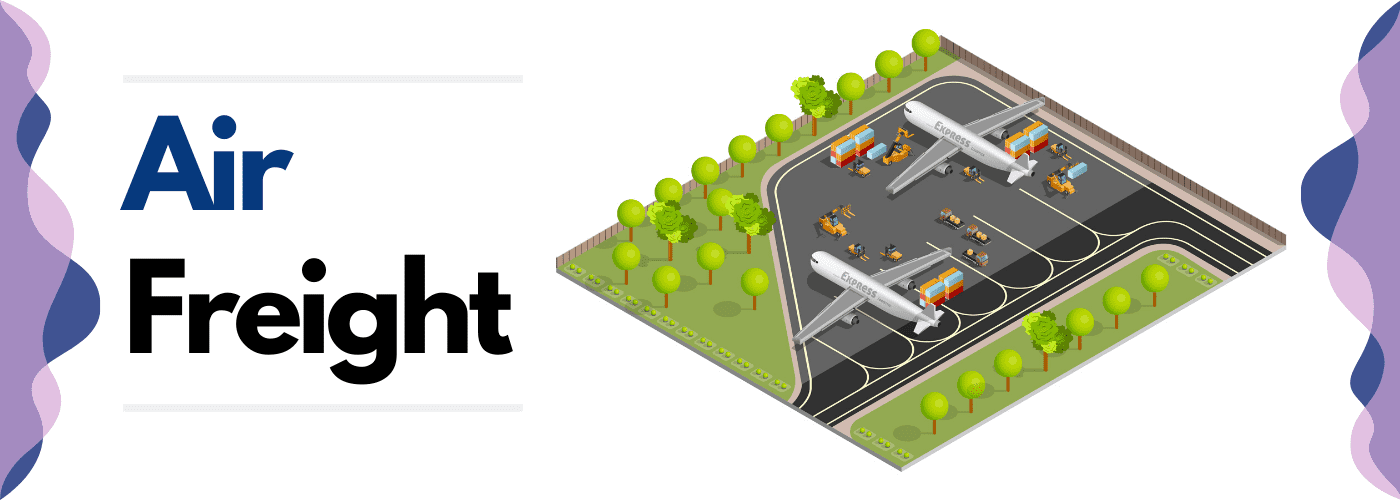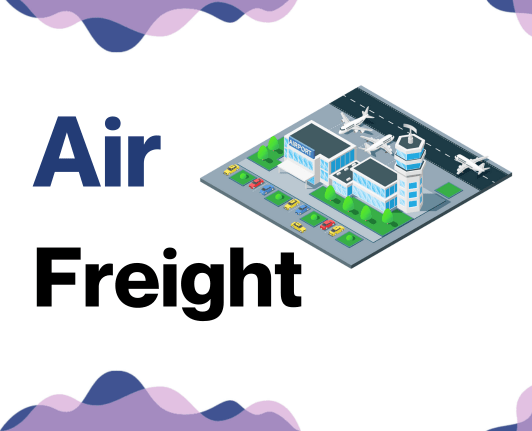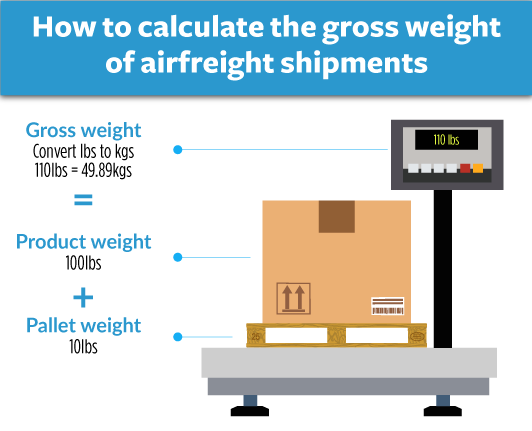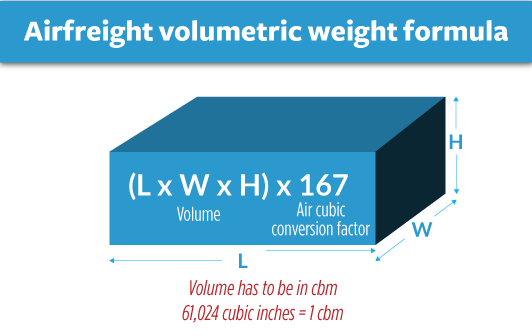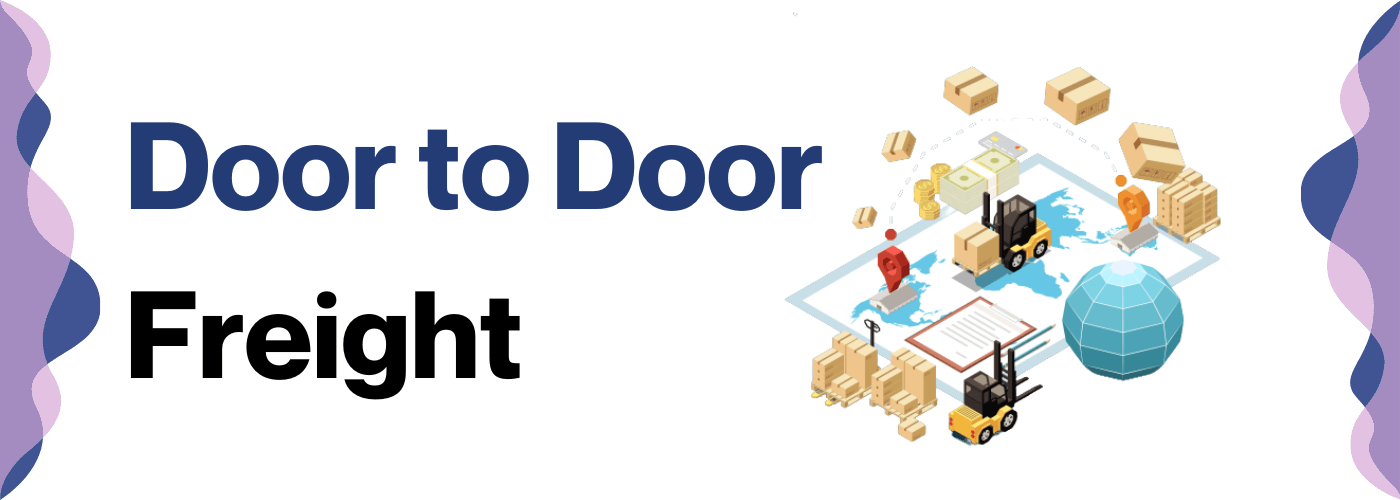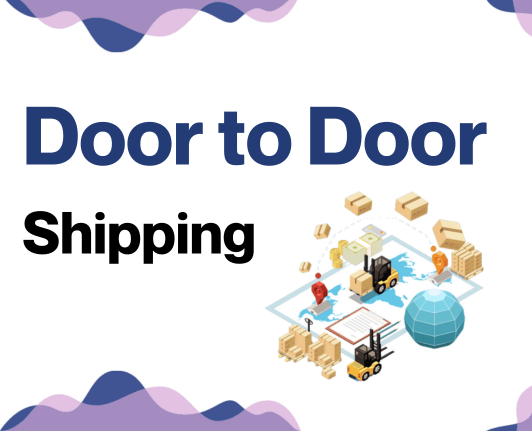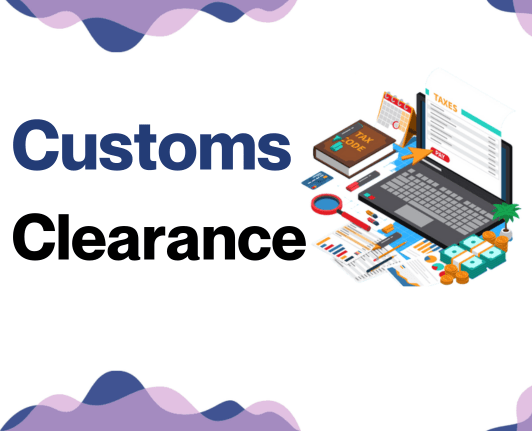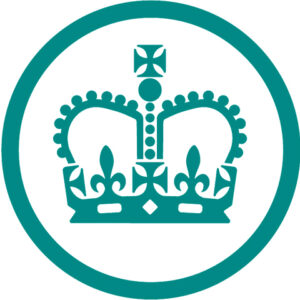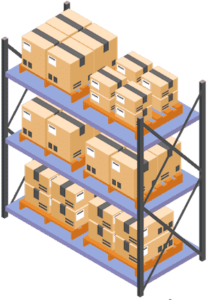Who knew navigating the high seas of international freight shipping could feel like cracking Da Vinci's code? With the gamut of essential aspects like deciphering the maze of rates, scoping transit times, and wrestling with customs regulations, shipping goods from the UK to Algeria might seem daunting. This comprehensive guide will walk you through a variety of freight options - be it air, sea, road, or rail; these pages are your ultimate roadmap.
You'll learn about the ins-and-outs of customs clearance, grasp the mechanics behind duties and taxes, and draw from valuable advice tailored just for businesses like yours. If the process still feels overwhelming, let DocShipper handle it for you! As your one-stop international freight forwarding solution, we transform complex shipping challenges into success stories for businesses worldwide.
Table of Contents
Which are the different modes of transportation between UK and Algeria?
Choosing the perfect transport method between the UK and Algeria is like deciding on how to get the freshest food to your dinner table - it all about timing, route, and reliability. With the sea separating them, road or rail trips are out of the picture. So, it's a choice between the wings of airfreight or the waves of sea freight. Your decision will be a balancing act of speed, cost, and the type of goods you're shipping. Fresh food, for instance, might prefer the fast flight, while large machinery might prefer a leisurely sea voyage. It's all about fitting the transport method to your specific cargo needs.
How can DocShipper help?
Sailing through international logistics can be rough. Let DocShipper smoothen your journey. We cover everything from UK to Algeria, ensuring your cargo reaches safely and swiftly. From transport organization to customs clearance, we've got you covered. Got questions? We're all ears. Send us a message or call us for a free consultation. Take the first step towards hassle-free shipping - Request a free estimate within 24 hours.
DocShipper Tip: Ocean freight might be the best solution for you if:
- You're dealing with large quantities or oversized items. Sea freight offers a budget-friendly way to maximize space, a particularly useful option given the UK's extensive port network.
- Your shipment isn't on a tight schedule. Ocean transport typically takes longer than air or rail, but it offers reliability.
- Your supply chain involves key ports, allowing you to take advantage of a wide-reaching network of sea lanes.
Sea freight between UK and Algeria
As bustling trade hubs, the UK and Algeria are linked by a robust maritime web. Your goods can sail from the thriving ports of Southampton or London in the UK to the bustling Algerian ports of Algiers or Oran - notably one of the most cost-effective avenues if you're dealing in high-volume goods. But don't let the majestic view of containers poised in perfect geometry mislead you - ocean shipping between these countries is far from a walk in the park.
Why? Well, simply because sailing through a sea of paperwork and customs regulations can bewilder even the most seasoned shippers. Mistakes are easy to make, often resulting in unwanted costs and delays - not exactly an entrepreneur’s dream scenario, eh? But fear not, acquainting yourself with best practices and knowing the nitty-gritty shipping specifications can help you avoid choppy waters! We’re diving into the essentials in this part, preparing you to navigate this maritime maze with finesse.
Main shipping ports in UK
Port of London:
Location and Volume: Situated on the River Thames, the Port of London is integral to the UK's trade due to its accessible location in southeast England. The port handles a shipping volume of over 50 million tonnes annually.
Key Trading Partners and Strategic Importance: The Port of London has a broad base of global trading partners, with a particular emphasis on Europe, Asia, and the Americas. Its strategic importance stems from its comprehensive logistics infrastructure and proximity to the UK's largest consumer market.
Context for Businesses: If your business plan involves reaching the European market, the Port of London is well-positioned to facilitate access to this densely populated region, being closely connected to a broad range of distribution networks.
Port of Liverpool:
Location and Volume: The Port of Liverpool, located on the northwest coast of England, plays a central role in the country's shipping industry, handling close to 35 million tonnes of cargo each year.
Key Trading Partners and Strategic Importance: Its geographical advantage allows easy access to the United States and Ireland, making them key trading partners. Moreover, the port is strategically located with direct road and rail access, making domestic goods distribution effortless.
Context for Businesses: For businesses considering trade expansion to the USA or Ireland, the Port of Liverpool's advantageous geographical position and robust connections to internal logistics networks present a compelling option.
Port of Southampton:
Location and Volume: As the UK's number one port for automotive trade and located on the south coast of England, the Port of Southampton handles approximately 42 million tonnes of cargo annually.
Key Trading Partners and Strategic Importance: Southampton has a robust partnership with Asian countries, specifically China and Japan, due to its status as the primary hub for the auto trade.
Context for Businesses: If your business is associated with the automotive industry, leveraging the Port of Southampton in your shipping strategy can provide optimal access to major Asian markets.
Port of Felixstowe:
Location and Volume: On the east coast of England, the Port of Felixstowe is significant, primarily for container handling, with a capacity of over 4 million TEU.
Key Trading Partners and Strategic Importance: Serving as a major link to the European Mainland and Far East, Felixstowe is a central pivot for a number of trade routes.
Context for Businesses: For businesses dealing with a high volume of containerized goods, especially towards Europe and the Far East, incorporating the Port of Felixstowe into your logistics plan can prove highly beneficial.
Port of Dover:
Location and Volume: Located on the southeast coast of England, the Port of Dover is pivotal for roll-on/roll-off (Ro-Ro) freight, handling up to 2.5 million vehicles annually.
Key Trading Partners and Strategic Importance: The port's most significant trading partner is the European Mainland due to Dover's status as the UK's primary passenger and freight Ro-Ro facility.
Context for Businesses: If your business relies heavily on Ro-Ro shipping, the Port of Dover's superior connectivity with mainland Europe can meet your needs effectively.
Port of Grimsby:
Location and Volume: Positioned on the Humber Estuary in northeast Lincolnshire, the Port of Grimsby is noteworthy for handling around 500,000 TEU annually, mainly specializing in car shipments.
Key Trading Partners and Strategic Importance: With a specialized setup for automotive trade, Grimsby primarily trades with Europe and, to some extent, Asia.
Context for Businesses: If your business is anchored in the automotive sector, the Port of Grimsby with its car-specific facilities might be an essential part of your shipping strategy.
Main shipping ports in Algeria
Port of Alger :
Location and Volume: Located in the heart of the Algiers, the capital city of Algeria, this port is crucial for North African trade, with a shipping volume of more than 3.5 million TEUs annually.
Key Trading Partners and Strategic Importance: Its key trading partners include China, France, and Italy. As the oldest port of Algeria, it has a vital position in the Mediterranean Sea trade routes.
Context for Businesses: If you're considering expanding your business into North African markets, the Port of Algiers may be the cornerstone of your logistics strategy, given its central location and high trade volume.
Port of Annaba :
Location and Volume: Situated in Annaba, Eastern Algeria, this port is particularly important for mineral type goods, handling over 11 million tons of goods annually.
Key Trading Partners and Strategic Importance: Its main trading partners include Europe and North America. The port's strategic importance lies in its capacity for bulk goods and easy connectivity to rail shipping.
Context for Businesses: Businesses looking to ship goods such as minerals and ores would find the Port of Annaba particularly beneficial due to its bulk goods handling capabilities.
Port of Oran :
Location and Volume: Located in Oran, the second-biggest city in Algeria, this port is one of the main trading points for Western Algeria, handling around 5 million tons a year.
Key Trading Partners and Strategic Importance: The port's primary trading partners are Spain, France, and the United States. The port’s strategic location allows easy access to both European and American markets.
Context for Businesses: Businesses needing frequent, large shipments to Western Algeria, or access to multiple significant markets, should consider the Port of Oran due to its location and overall shipping volume.
Port of Skikda :
Location and Volume: Nestled in the Gulf of Stora, this port is a crucial link for oil and gas goods, handling over 25 million tons of goods each year.
Key Trading Partners and Strategic Importance: Its key trading partners mainly include European countries. Specifically, it's crucial for energy goods trade due to several nearby oil refineries.
Context for Businesses: If your business involves energy-related goods, then the Port of Skikda, with its proximity to oil refineries, could be an indispensable part of your distribution network.
Port of Bejaia :
Location and Volume: Located in the Gulf of Bejaia, this port is a significant hub for general cargo and container handling, managing over 14 million tons of goods annually.
Key Trading Partners and Strategic Importance: The port primarily serves Europe, Asia, and the Americas. It holds strategic importance due to its well-established infrastructure for containerized goods.
Context for Businesses: Port of Bejaia could be ideal for businesses that deal with containerized goods, given its capacity, dedicated terminals, and international connectivity.
Port of Djendjenhttp://www.epdjendjen.dz/
Location and Volume: Nestled in the heart of the city of Jijel in Northeast Algeria, this port is responsible for moving 12.5 million tons of goods annually.
Key Trading Partners and Strategic Importance: The port primarily deals with European, Asian, and American businesses and stands among the top ports where general cargo, dry bulk, and container are concerned.
Context for Businesses: Given its strategic location and versatile shipping options, the Port of Djendjen could be a particularly beneficial stop for those with diverse logistical needs.
Should I choose FCL or LCL when shipping between UK and Algeria?
Shipping between the UK and Algeria? You've got a key decision to make: ship by consolidation (LCL) or opt for a full container (FCL)? Your choice could swing the balance in terms of cost, delivery timing, and the smooth sailing of your logistics process. Our aim? To help you wrap your head around these two main sea freight options and arm you with the knowledge to make a decision that best suits your specific shipping needs. So, let's dive in...
LCL: Less than Container Load
Definition: Less than Container Load (LCL) shipping means your cargo occupies part of a larger container, consolidated with other shipments. Being a shared service, LCL shipments are cost-effective and allow flexible shipping volumes.
When to Use: Choose LCL shipping when your freight volume is low — typically less than 13/14/15 CBM. This option also works well for non-urgent deliveries as it takes longer due to consolidation and deconsolidation processes.
Example: Let's say you need to transport 10 CBM of automotive parts from Liverpool to Algeria. Considering your volume, sending via LCL freight might be your best option, offering savings and without needing to fill a whole container.
Cost Implications: LCL shipping often means lower upfront freight costs due to shared space. However, additional costs might emerge like deconsolidation fees upon arrival in Algeria. So while LCL seems economical for smaller volumes, remember to account for all potential charges when validating an LCL shipping quote. This can help avoid any unwelcome surprises along your shipping path.
FCL: Full Container Load
Definition: FCL shipping, or Full Container Load, is the transport of goods within a container dedicated solely to your cargo.
When to Use: This method shines when shipping larger volumes. If your cargo is above 13-15 CBM, opting for FCL is a smart move. FCL shipping ensures a safer transit as the container remains sealed from the origin to the destination.
Example: Let's say you're a UK-based furniture manufacturer exporting a large order to a client in Algeria. Given the volume and weight of your products, using an FCL container would maximize cost-efficiency and maintain product security during transit.
Cost Implications: In FCL shipping, you pay for the entire 20'ft or 40'ft shipping container, regardless of whether it is fully filled. Despite this, it is more economical for larger shipments due to the flat-rate. An accurate FCL shipping quote will depend on various factors such as distance, seasonality, and current market rates, but you will likely find it more affordable as volume increases. Make sure to consult with your freight forwarder to accurately assess cost implications.
Unlock hassle-free shipping
Are you puzzled by ocean freight options between UK and Algeria? At DocShipper, our mission is to demystify shipping for businesses. Our squad of experts can help you determine whether consolidation or full container shipping is the ideal fit for your specific needs, considering factors like cargo size, urgency, and cost-efficiency. Doesn't it sound stress-free? Connect with us now for a free, no-obligation estimate! Let's create your tailor-made shipping solution together.
How long does sea freight take between UK and Algeria?
Sea freight between the UK and Algeria generally takes around 10 to 14 days. These transit times can vary and are influenced by factors such as the specific ports used, the weight, and the nature of the goods being shipped. To receive a quote tailored to your specific shipping needs, we recommend contacting an experienced freight forwarder like DocShipper.
Here's a general overview of the average transit times across the main freight ports in both countries:
| UK Ports | Algeria Ports | Days |
| Port of London | Port of Alger | 11 |
| Port of Felixstowe | Port of Oran | 7 |
| Port of Liverpool | Port of Bejaia | 10 |
| Port of Southampton | Port of Skikda | 10 |
Please note, these times are estimates and can vary depending on a variety of factors.
How much does it cost to ship a container between UK and Algeria?
Calculating the shipping cost between the UK and Algeria might seem daunting, but we're here to simplify it for you. Ocean freight rates per CBM typically range widely, with exact costs influenced by factors such as Point of Loading, Point of Destination, the carrier, nature of goods, and even market fluctuations on a monthly basis. However, don't stress about the varied factors - our team of shipping specialists is committed to providing you with the best rates for your specific needs. Remember, each quote is tailored, ensuring you receive the most comprehensive and competitive shipping cost solution. You can count on us for a smooth, seamless, and cost-effective shipping journey.
Special transportation services
Out of Gauge (OOG) Container
Definition: An OOG container is a special container designed to carry out of gauge cargo, which exceeds the standard dimensions of regular shipping containers.
Suitable for: Large machinery, construction materials, equipment, and any other oversized items that won't fit into a standard container.
Examples: Manufacturing equipment, windmill blades, cranes, tractors.
Why it might be the best choice for you: If your business deals with wide, tall, or long goods that can't be disassembled and are too bulky for regular containers, this is your ideal shipping option.
Break Bulk
Definition: Break bulk shipment involves cargo that doesn't fit into containers due to size or weight, and is loaded individually onto vessels.
Suitable for: Oversized, heavy goods, or those needing special handling.
Examples: Large construction materials, timber, steel beams, generators.
Why it might be the best choice for you: It's ideal for shipping unique items that require delicate handling or aren't suitable for standard containers due to their size or weight.
Dry Bulk
Definition: Dry bulk refers to the transportation of homogeneous goods in loose cargo load, without any packaging.
Suitable for: Mostly commodities like grains, coal, iron ore.
Examples: Agricultural produce like wheat, barley, or minerals like sand, cement.
Why it might be the best choice for you: If your business involves selling raw materials or bulk commodities, this method offers economical and efficient shipping.
Roll-on/Roll-off (Ro-Ro)
Definition: A Ro-Ro vessel is a specially designed ship with built-in ramps which allows vehicles to be driven on and off the ship on their own wheels.
Suitable: Cars, trucks, trailers, and any type of wheeled machinery.
Examples: Cars, buses, construction vehicles, heavy machinery.
Why it might be the best choice for you: If your business deals with vehicles which can be driven on their own, this is the easiest and most affordable way to ship them globally.
Reefer Containers
Definition: Reefer containers are refrigerated containers used to transport temperature-sensitive cargo.
Suitable for: Foods, pharmaceuticals, plants, and any other goods needing temperature control during transport.
Examples: Fresh fruits, vegetables, flowers, vaccines, seafood.
Why it might be the best choice for you: If your products require a certain temperature to maintain freshness or efficacy, reefer containers offer the perfect environment for your goods during their journey.
For a tailored solution best fitting your specific shipping needs, don't hesitate to turn to DocShipper. We're here to simplify your shipping process, offering a free shipping quote in less than 24 hours.
DocShipper Tip: Air freight might be the best solution for you if:
- You're facing tight deadlines or need rapid delivery. Air freight is your quickest option, which aligns well with the fast-paced business environment.
- Your shipment is relatively small, under 2 CBM. Air freight is ideal for these more compact loads.
- Your cargo's destination isn't easily reached via sea or rail. This makes air freight a viable option, especially given the extensive network of airports available.
Air freight between UK and Algeria
Swift and secure, air freight from the UK to Algeria masters the trick of time-constrained trade. Small batches of expensive electronics, like your latest smartphones or precious pharmaceuticals, can wing their way to Algeria fast and in perfect condition. Favouring speed and reliability, it shoots down concerns over erratic sea or road shipping schedules. Yet, many shippers drop the ball by miscalculating costs, like misjudging the shipping weight – an error that can weigh heavy on your wallet.
In this guide, we unpack those costly oversights. Think of air freight as a temperamental Thoroughbred – blazing fast yet requiring careful handling. Getting the hang of it keeps your finances on track and your goods on the go. Let's dig into those best practices and turn you from first-time flier to savvy shipper.
Air Cargo vs Express Air Freight: How should I ship?
As an entrepreneur eyeing new market horizons in Algeria, you're likely weighing up the best way to transport your wares from the UK. Put simply, while Air Cargo typically flies your goods on a commercial passenger airline, Express Air Freight zips your cargo across the sea using a plane solely dedicated to freight. Let's delve into the specifics to make sure your shipment is as smooth (and cost-effective) as your morning coffee routine.
Should I choose Air Cargo between UK and Algeria?
If you're considering Air cargo for shipping goods from the UK to Algeria, you're on the right track! This option is assimilated with cost-effectiveness and reliability. Airline cargo majorly peaks attractiveness for consignments above 100/150 kg (220/330 lbs). Airlines like British Airways and AirAlgerie provide commendable service. However, longer transit times due to fixed schedules can be a factor. Suiting budgetary needs with knowledgeable decisions can pave the way for a fluid shipping experience.
Should I choose Express Air Freight between UK and Algeria?
Express air freight, courtesy of international couriers like FedEx, UPS, and DHL, is your go-to solution for swift, direct shipping from UK to Algeria. Ideal for cargo under 1 CBM or 100/150 kg (220/330 lbs) because of its efficiency and cost-effectiveness. This specialized service, using cargo-only planes, ensures prompt, hassle-free delivery, avoiding extensive customs procedures that potentially delay transit. If you strive for speed, reliability, and peace of mind, express air freight is the answer for your small-scale shipping needs.
Main international airports in UK
Heathrow Airport
Cargo Volume: Handles over 1.7 million metric tons of cargo annually.
Key Trading Partners: United States, China, India, Hong Kong, and Australia.
Strategic Importance: Located in London, it's one of the busiest airports in the world. It serves as a significant connection hub for European and International markets.
Notable Features: Offers a 24/7 cargo operation and has a wide array of specialized storage facilities, including for perishables and pharmaceuticals.
For Your Business: Given its extensive reach and state-of-the-art facilities, Heathrow could prove instrumental for companies looking to ship diverse goods to/from global markets, particularly the Asian and American markets.
East Midlands Airport
Cargo Volume: Approximately 360,000 tonnes per year.
Key Trading Partners: Covers European destinations primarily, as well as some international ones.
Strategic Importance: Considered the UK's largest pure cargo airport and a major hub for freight operators.
Notable Features: Home to heavyweight cargo airlines such as DHL, UPS, and TNT.
For Your Business: If you're focusing on European markets, utilizing East Midlands Airport could provide you reliable connections and services with renowned freight transporters.
Manchester Airport
Cargo Volume: Receives over 120,000 tonnes per year.
Key Trading Partners: Major links with the United States, Middle East, and Asian countries.
Strategic Importance: Manchester airport stands as the North's gateway to the world. It also boasts of a £1bn transformation programme taking place.
Notable Features: Offers around-the-clock customs availability and it is one of the few airports to offer 'Cargo 2000.'
For Your Business: If your business lies in the North of the UK or looks towards collaborations with American and Middle eastern associates, Manchester Airport is an efficient choice.
Stansted Airport
Cargo Volume: Manages around 250,000 tonnes annually.
Key Trading Partners: Europe, North America, and Asia.
Strategic Importance: The third-largest air freight hub in the UK, with dedicated cargo facilities.
Notable Features: A key base for several cargo airlines including FedEx and UPS.
For Your Business: Stansted Airport's substantial capacity and commitment towards freight handling makes it an excellent choice for businesses aiming to expand their connections with European, American, and Asian markets.
Glasgow Prestwick Airport
Cargo Volume: Records show close to 14,000 tonnes passed through in a year.
Key Trading Partners: Predominantly serves the United States and Europe.
Strategic Importance: Glasgow Prestwick is Scotland’s largest commercial airfield and the UK's only rail-connected airport.
Notable Features: Caters to a spectrum of cargo, from general freight to outsized oil industry-related items.
For Your Business: If your cargo is large, heavy, or unconventional, or if you’re seeking straightforward connections with the US and Europe from Scotland, Glasgow Prestwick could be a strong part of your shipping strategy.
Main international airports in Algeria
Houari Boumediene Airport
Cargo Volume: Handling over 51,600 tons of cargo annually, this is the busiest cargo airport in Algeria.
Key Trading Partners: Main trading partners include France, China, Italy, Spain, and Germany.
Strategic Importance: As Algeria's largest airport, its location in Algiers, the capital city, makes it a strategic hub for international and regional freight.
Notable Features: The airport boasts modern cargo facilities with temperature-controlled options available, making it suitable for various goods' transportation.
For Your Business: Its extensive reach to international destinations and frequent flight schedule ensures the seamless transportation of your goods.
Oran Es Sénia Airport
Cargo Volume: While smaller than Houari Boumediene, Oran Es Sénia still manages around 2,300 tons of cargo annually.
Key Trading Partners: Important trading partners include Spain, France, and Turkey.
Strategic Importance: Situated in the second-largest city, Oran, the airport provides an alternative route for businesses looking to ship goods closer to Western Algeria, Morocco, and the Atlantic Ocean.
Notable Features: It has dedicated cargo handling services that facilitate efficient loading and unloading of freight.
For Your Business: The strategic location of this airport would be beneficial if your target market falls within its periphery.
Ain Arnat Airport
Cargo Volume: While not as busy as the others, Ain Arnat handles a significant amount of cargo considering its size.
Key Trading Partners: Major partners are France, Spain, and Italy.
Strategic Importance: Located in Sétif, a key economic city, Ain Arnat offers businesses opportunities to penetrate Eastern Algeria and the surrounding markets.
Notable Features: This airport features modern equipment and technologies to facilitate cargo handling.
For Your Business: This airport, closer to Tunisia, could be a smart choice if your business operates within, or aims to reach, North Africa and the Middle Eastern markets.
Feel free to explore these diverse options to ensure an optimal freight forwarding experience for your organization. By understanding the varying capabilities and focuses of these airports, you can make a more informed decision on how best to direct your company's shipping efforts.
How long does air freight take between UK and Algeria?
Shipping goods between the UK and Algeria via air freight typically takes an average of 1-3 days. However, keep in mind this is not a fixed period as transit times may fluctuate depending on various factors. These can include the specific airports used, the total weight of the shipment, and the nature of the goods being transported. To receive precise, tailored timelines for your shipment, consulting with a freight forwarder such as DocShipper is highly recommended.
How much does it cost to ship a parcel between UK and Algeria with air freight?
Shipping an air freight parcel between the UK and Algeria can cost roughly between £1.50 and £4.00 per kilogram. The exact price, however, depends on various factors such as proximity to departure and arrival airports, parcel dimensions, weight, and nature of goods. Our experienced team customizes quotes based on these variables to ensure that you get the most competitive rates possible for your specific shipping needs. Feel free to contact us. We promise to provide a free, personalized quote within 24 hours.
What is the difference between volumetric and gross weight?
Gross weight refers to the package's actual weight, including the box and packaging materials. Volumetric weight, on the other hand, reflects the package's size. It's a measure of the space your package occupies on the aircraft.
Calculating these weights can differ based on the kind of air freight. For regular Air Freight, you divide the total cubic centimeter (length x width x height) by 6000. Let's say we have a box of 50cm x 40cm x 30cm. It would be: (50 x 40 x 30) / 6000 = 10 kg. In pounds, this is approximately 22 lbs.
Express Air Freight, uses a different factor, 5000. So, for the same box, it's: (50 x 40 x 30) / 5000 = 12 kg or about 26.5 lbs.
Gross weight for the same box might be 8 kg (about 17.6 lbs if packed lightly with items). In Air Freight, the chargeable weight would be the volumetric weight of 10 kg (22 lbs), but in Express Air Freight, it's 12 kg (26.5 lbs) as it's the higher of the gross and volumetric weights.
Understanding these calculations is essential because the freight company charges based on whichever weight is higher. It ensures fair pricing by considering both space used and actual product weight.
DocShipper tip: Door to Door might be the best solution for you if:
- You prioritize ease and a hassle-free shipping experience. Door-to-door services manage the entire process, from collection to final delivery.
- You appreciate the efficiency of having one dedicated contact. With door-to-door, a single agent is responsible for overseeing all elements of your shipment.
- You want to limit the number of times your cargo is transferred. Door-to-door services minimize the switches between various transport methods, lowering the chances of damage or loss.
Door to door between UK and Algeria
Exploring the convenience of international door-to-door shipping? Picture this - your cargo, picked from your doorstep in the UK, shipped, cleared through Algerian customs, and delivered straight to the final location. Quick, efficient, and hassle-free. Sounds like a dream, doesn't it? Pro-tip: It's often a cost-effective solution, especially in complex routes. Ready to unpack the perks and caveats of door-to-door shipping from UK to Algeria? Let's dive in.
Overview – Door to Door
Your smooth path to stress-free shipping between the UK and Algeria lies in our door-to-door service. Committed to efficiency, we take care of all logistics, ensuring that your goods travel seamlessly from the UK to Algeria. Despite complex shipping processes, tricky customs clearances, and multiple handovers, our all-inclusive service eases these hurdles. However, while convenience defines door-to-door, be mindful of potentially higher costs. DocShipper's clients often deem these a worthwhile investment for hassle-free commerce. Buckle up as we unravel how this comprehensive service is your secret weapon in international trade.
Why should I use a Door to Door service between UK and Algeria?
The thought of navigating the intricate maze of international shipping got you pulling your hair out? Well, let's deep dive into five stellar reasons why Door to Door service between UK and Algeria might just be your logistics hero!
1. Stress No More: Door to Door service takes the logistic complexities off your shoulders. From pick-up to customs clearance and delivery, every nitty-gritty detail is expertly addressed. Bye-bye, endless paperwork and daunting customs forms!
2. Express Delivery: Urgent shipments? No problem! Leveraging established connections and competent handling, Door to Door service ensures your cargo arrives safe, sound, and on time. You won't be biting your nails watching the clock!
3. Specialized Care: Strange, complex cargo? Door to Door service laughs in the face of challenge. Building on comprehensive knowledge of diverse goods, every shipment receives tailored care - your cargo is cradled all along its journey.
4. Convenience King: Too busy to track your cargo step-by-step? Door to Door service has your back. Let experienced professionals manage every leg of the transport while you focus on your core business.
5. End to End Coverage: No more liaising with a different party at every checkpoint. With Door to Door service, you engage with just one partner who handles everything from the first mile to the last. Factor in the extra time saved, and it's a logistics slam dunk!
So, whether you're shipping a fancy high-tea set or loading up an entire vintage car, Door to Door service makes your logistics journey between UK and Algeria feel like a breeze. Happy shipping!
DocShipper – Door to Door specialist between UK and Algeria
Experience hassle-free door-to-door shipping from the UK to Algeria with DocShipper. We're here to navigate the complexities of international logistics for you. From packing and transportation to customs clearance, regardless of the shipping method, we've got it covered. You will have a dedicated Account Executive to ensure a smooth and efficient shipping process. Receive a free estimate in less than 24 hours or reach out directly to our consultants. Shipping has never been easier when you let DocShipper handle it.
Customs clearance in Algeria for goods imported from UK
Navigating the customs clearance in Algeria for goods imported from the UK can be a bewildering maze. It's not just about getting your merchandise from A to B, but the road full of potential pitfalls like surprise fees, and complexities around duties, taxes, and licenses. You also need a sound grasp of quotas; failure to comply can leave your goods stranded in customs. Don't fret though - we'll break these down in subsequent sections. Think of customs clearance as an intricate puzzle. It's convoluted, yes, but take a deep breath, the pieces do fit together. DocShipper is here to shore up your confidence and help you tackle these challenges. Reach out to us with your goods' origin, value, and HS Code, and we'll assist you in fashioning an estimate. Sprinkle a little patience, and voila – you've got this! Remember, international freight forwarding isn't just logistics. It's an art.
How to calculate duties & taxes when importing from UK to Algeria?
Estimating duties and taxes for your UK to Algeria import can feel like a daunting process, but breaking it down can make a big difference. Start by gathering all the necessary details about your product, such as the country of origin, the HS Code, the Customs Value, and the Applicable Tariff Rate. Take note, there might be other taxes and fees that apply to the products. Your journey into determining these costs begins first with identifying where the goods were made or produced. This step is essential in order to set the stage for the rest of the procedure. It helps you to classify your goods correctly, making the further parts of the process more understandable and efficient.
Step 1 - Identify the Country of Origin
The country of origin lays the groundwork for the estimation of duties and taxes. Here's why it's indispensable:
1. Trade Agreements: UK and Algeria have specific trade agreements to encourage the smooth flow of goods - increasing predictability, reducing obstacles, and potentially reducing the customs duties you pay.
2. HS Code: The Harmonised System (HS) Code depends substantially on the country of origin. A perfect start to finding the right code.
3. Duty Rates: Each country levies different duty rates based on the origin. Knowing the country equates to a more accurate duty estimation.
4. Import Restrictions: Various goods face import restrictions, depending on the origin. For you, as an importer, a solid grasp of the origin saves hassle at the customs.
5. Direct Point of Contact: Should things go south, and you need to directly contact the manufacturer or supplier, knowing the origin proves crucial.
Foreknowledge of the country of origin aids in the detailed planning of your shipments and helps mitigate any potential customs complications. So, prepare well, save money and hassle-free operate your business. It's that simple!
Step 2 - Find the HS Code of your product
The Harmonized System Code, or HS Code, plays a key role in the international trade of goods. It's a standardized system of names and numbers used by customs authorities globally to classify traded products. These codes are essential in determining the amount of duties and taxes you'll pay when shipping goods internationally.
Finding the HS Code for your product might initially sound like a challenging task. For most businesses, the easiest option is to reach out to their suppliers. Given their background in exporting goods and their familiarity with regulations, suppliers are well-positioned to provide you with accurate information.
However, if that isn't feasible for any reason, fear not! We have a straightforward process ready for you.
Step one: Visit the Harmonized Tariff Schedule site. It's an HS lookup tool that will significantly simplify your task.
Step two: Enter your product's name into the search bar and hit enter.
Step three: Look for the Heading/Subheading column. In this field, you'll identify the HS Code for your product.
One critical factor we need to stress on is precision. Accuracy in identifying your HS Code is paramount. A small error can lead to customs delays, fines, and a whole lot of unnecessary headaches.
Here's an infographic showing you how to read an HS Code. Reviewing it should help you understand the basics of these codes and their significance in the shipping process.
Step 3 - Calculate the Customs Value
Getting to grips with customs value can seem like a tough task but no worries, we're here to break it down for you. So, you may think that the value of your goods is what they would retail for in Algeria, but that's not how customs sees it. Customs value, or the value used to calculate customs duties, is actually a combination of your goods' price, international shipping costs, and insurance cost. This sum is known as the CIF value. For example, if your goods are worth $10,000, shipping cost is $2000 and insurance is $300, your CIF value - i.e. customs value - is $13,300. Remember, this is the figure you'll be basing your customs duties on, not just the original value of your goods. Seems more manageable now, right?
Step 4 - Figure out the applicable Import Tariff
Understanding import tariffs is key to estimating the total cost of getting your goods from the UK to Algeria. Basically, an import tariff is a tax imposed by the importing country on the goods being shipped. This tariff varies by product type, which is identified by the Harmonized System (HS) code.
Algeria mainly uses the Ad Valorem tariff system, which calculates duties as a percentage of the goods' value. To find your applicable tariff:
1. Visit the UK's Trade Tariff tool here(https://www.gov.uk/trade-tariff).
2. Input the HS code identified earlier and the country of origin.
For instance, imagine you're importing bicycles with an HS code '8712.00.00' from the UK. Let's say, the tool provides a tariff rate of 15%. If your Cost, Insurance, and Freight (CIF) amount to $10,000 USD, your import duty would be 15% of $10,000, that's $1,500.
Knowing this helps you anticipate the total cost, ensuring a smooth, cost-effective transaction.
Step 5 - Consider other Import Duties and Taxes
In addition to the standard tariff, be aware that other taxes may apply based on the product's nature and its origin country. For instance, imports from the UK to Algeria may be subject to excise duty, which typically applies to specific goods such as alcoholic beverages or tobacco products.
Another potential tax is the anti-dumping tax implemented to protect Algerian industries from cheap imports that may harm the local economy. Let's say, for example, you're importing steel products that are priced substantially lower than Algerian market rates. In this case, anti-dumping taxes may apply to level the playing field.
Most significantly, all imported goods are typically subject to a VAT rate in Algeria. As of 2021, the standard VAT in Algeria is 19% but can be 9% for some goods. For example, if you're importing a bulk shipment of shoes priced at $10,000, you can expect to pay $1,900 as VAT at the standard rate.
Always remember these numbers are examples and actual rates can vary. The key is to stay informed about current Algerian tax rates and regulations to prevent unexpected costs and delays in your imports. Connecting with a reliable customs agent or freight forwardener can save you significant time and stress in this aspect.
Step 6 - Calculate the Customs Duties
In Step 6, we'll unveil the door to calculating customs duties when importing goods from the UK to Algeria. Central to this is the customs value being the item's cost, insurance, and freight (CIF).
I. Consider an instance where the customs value of your goods is $10,000, with a customs duty rate of 15%. You'd pay $1,500 in customs duties, ($10,000 15% = $1,500), ending at a total of $11,500 with no Value Added Tax (VAT).
II. Now, let's add VAT. If the VAT rate is 19%, factor that to the value including customs duty, not the original value. So, $11,500 19% = $2,185. Your total climbs to $13,685.
III. Finally, should anti-dumping and excise duties apply, let's say 3% for each, calculate these on the value including VAT. So, $13,685 3% = $410.55 (for each tax). You're now at $14,506.1.
Crunching these numbers can be complex, especially when every penny counts. That’s where DocShipper steps in. Our team knows its way around every crevice of the customs clearance labyrinth, ensuring you're not overcharged. With our service, you'll receive a free quote in under 24 hours. Let us ease your way through this crucial stage of international shipping. Comforting, isn't it?
Does DocShipper charge customs fees?
While DocShipper, serving as a customs broker in both UK and Algeria, will handle your customs clearance and present you with an invoice for these services, any customs duties and taxes are paid directly to the government, not to DocShipper. For your peace of mind, we'll provide the official documents produced by the customs office, verifying just what you've paid. It's the assurance that you only cover what's levied by the authorities, no hidden charges.
Contact Details for Customs Authorities
UK Customs
Official name: Her Majesty's Revenue and Customs (HMRC)
Official website: https://www.gov.uk
Algeria Customs
Official name: General Directorate of Algerian Customs
Official website: http://www.douane.gov.dz
Required documents for customs clearance
Unpacking the world of customs documentation can be a maze, right? This section simplifies it all, taking you through Bill of Lading, Packing List, Certificate of Origin, and Documents of conformity (CE standard). It's all about making your freight journey less complex and more predictable. Get ready for clarity!
Bill of Lading
Understanding the Bill of Lading is crucial when shipping goods between the UK and Algeria. It's like a ticket confirming that your goods are on the freight journey, marking the transition of ownership from the sender to the receiver. Just picture it as the passport for your shipped items. In the digital age, you can opt for a 'telex' or electronic release, saving time and reducing paperwork. If you are involved in air cargo, you'll encounter the AWB (Air Waybill), the airborne cousin of the Bill of Lading. Businesses looking to streamline their operations should consider these options, as they provide benefits like faster document processing and fewer chances for loss or damage. Remember, these documents are your safeguard in the complex world of international trade, serving as legal proof and offering many logistic advantages.
Packing List
Think of the Packing List as your cargo's ID card when shipping from UK to Algeria—it's truly that important. It needs to be as accurate as possible, outlining the ins and outs of your shipment: quantities, descriptions, weights, and so on. If you're shipping automotive parts, for example, not only should you list each part, but be specific—don't just write 'screws', instead write 'stainless steel hex screws M4x10'. The Packing List aids with loading and unloading, and helps Algerian customs verify exactly what's entering the country. Mistakes here can lead to delays, so take the time to get it right, whether you're shipping by sea or air. Maintain accuracy and detailed descriptions—it's your route to a smoother customs experience.
Commercial Invoice
Navigating the complex task of shipping goods between the UK and Algeria? Your Commercial Invoice will play a critical role in this, acting as the customs' proof of purchase. It needs to accurately detail the buyer, seller, goods description, value, and the delivery terms, often termed as Incoterms. Be mindful that inaccuracies can lead to clearance delays or fines. For example, if you're exporting manufactured goods, align the product descriptions on the commercial invoice with those on the packing list and Bill of Lading. This alignment helps smooth out the customs process. As you tackle this hurdle, remember your Commercial Invoice is more than a document; it's your key to efficient cross-border commerce. Just ensure everything tallies, and your shipping journey becomes easier!
Certificate of Origin
Navigating the shipping process between the UK and Algeria? Take note of the Certificate of Origin. This document is crucial because it verifies your goods' country of manufacture. So why does it matter? Say, your cargo consists of leather bags crafted in the UK - by mentioning 'UK' as the country of manufacture in the Certificate of Origin, you become eligible for potentially lower customs duties, making your shipping pocket-friendly. Remember the time you enjoyed those reduced tariffs for your designer footwear shipment? The certificate played a significant role. So, ensure it's accurately filled out – your wallet will thank you!
Get Started with DocShipper
Stressed by UK-Algeria customs procedures? At DocShipper, we streamline the journey. We handle all elements of customs clearance to ensure a hassle-free process. Trust us with your shipping needs. Get your free quote today and enjoy a smooth and efficient service, delivered within 24 hours. Your freight, our expertise, it’s that simple!
Prohibited and Restricted items when importing into Algeria
Understanding what you can and can't import into Algeria can be tough. This guide is designed to help you steer clear of hassles with Algerian customs by providing a run-down on prohibited and restricted items. This way, you can avoid unnecessary delays and penalties.
Restricted Products
- Alcoholic Beverages: You have to apply for a permit from the Ministry of Trade, Algeria. Do keep in mind that the alcohol levels in the beverages must comply with the Algerian standards.
- Cosmetic Products: You need to seek approval from the National Laboratory for the Control of Pharmaceutical Products (LNCPP), Algeria The products must meet all cosmetic regulatory requirements.
- Pharmaceuticals: Special import licenses are required from the Algerian Ministry of Health . The products have to comply with the pharmaceutical regulations.
- Agricultural Products: You have to have permits issued by the National Inter-Professional Council of Wine (CNIV) The produce should meet the agricultural standards.
- Tobacco & Tobacco Products: Require special permission from the Algerian Ministry of Commerce . Strict rules are in place for the import of these products.
- Livestock & Animal Products: Import licenses are given by the Algerian Ministry of Agriculture . Be sure to know and understand the sanitary conditions required.
- Wireless Electronics: You will need a license from the Regulatory Authority for Post and Telecommunications, Algeria. The electronic devices must adhere to certain guidelines.
Remember to always check with each agency directly to ensure you have the correct and most updated information. Happy shipping!
Prohibited products
- Illicit drugs or substances
- Weapons, including firearms, ammunition, and explosives
- Counterfeit money and goods
- Obscene material and pornography
- Items endangering public health, fauna, or flora
- Endangered species or products derived from endangered species
- Radioactive material
- Cultural artifacts and precious metals without appropriate documentation
- Any forms of asbestos fibers
- Pesticides and fertilizer containing dangerous substances
- Hazardous waste, including, but not limited to, used motor oil and used batteries
- Certain genetically modified organisms, harmful to local biodiversity
- Items infringing upon intellectual property rights
Are there any trade agreements between UK and Algeria
Yes, there are trade agreements between the UK and Algeria which could influence your business shipping needs. As part of the Association Agreement with the EU, Algeria provides preferential trade terms to the UK. Although Brexit has instigated some changes, ongoing discussions hope to maintain these privileges. Moreover, Algeria's investment in infrastructure, like the new East-West Highway, promises improved road freight options in the future. Remember, however, you need to preserve all proper documents to take advantage of these arrangements.
UK - Algeria trade and economic relationship
In 2024, the total trade in goods and services (exports plus imports) between the UK and Algeria stood at £2.4 billion, an increase of 24.6% or £470 million in current prices from the four quarters to the end of Q1 2023. This robust growth in bilateral trade highlights the strengthening economic ties between the two countries.
The UK's exports to Algeria in 2024 were valued at £1.2 billion, a significant increase from the previous year. Key export products included machinery, vehicles, and chemicals, reflecting the UK's industrial and technological capabilities. Conversely, the UK's imports from Algeria amounted to £1.2 billion, primarily consisting of energy products, minerals, and agricultural commodities, underscoring Algeria's role as a supplier of natural resources.
The positive trade balance between the UK and Algeria in 2024 suggests that both countries are benefiting from their economic partnership. The UK is able to access critical raw materials and energy sources from Algeria, while Algeria gains access to high-value British goods and services. This mutually beneficial relationship is expected to continue strengthening in the coming years as the two countries explore new avenues for collaboration in areas such as renewable energy, infrastructure development, and technological innovation.
Your Next Step with DocShipper
Is international shipping between the UK and Algeria overwhelming your business? Let DocShipper help! Our experienced team manages your logistics, guarantees customs clearance, and tackles the administrative hurdles. Don’t let shipping complications hinder the potential of your business. Ready for hassles-free shipping? Reach out to DocShipper today for an easier tomorrow.
Additional logistics services
Discover how DocShipper goes the extra mile, handling your entire supply chain. From warehousing to distribution, we customize solutions, ensuring your freight reaches its destination smoothly and swiftly. Unveil more than just shipping - unveil a world of comprehensive logistics.
Warehousing and storage
Storing goods between UK and Algeria isn't always smooth sailing, especially when your products demand specific storage conditions. Finding a reliable partner for temperature-controlled warehousing can be the difference between profit and loss. Get rid of the guesswork - explore professional warehousing solutions on our dedicated page: Warehousing.
Packaging and repackaging
Don't underestimate the power of good packaging! It's your frontline defense against damaged goods when shipping from the UK to Algeria. Our trustworthy agents will ensure each coffee mug or car part is packed safely, then repackaged at transit points, if needed. Remember, protection and perception matter - a crumpled package is bad for branding. More info on our dedicated page: Freight packaging
Cargo insurance
Transporting goods comes with its share of risks, different from your usual fire insurance. That's where cargo insurance steps in! It covers losses that might occur due to damage or loss during transit. Imagine your shipment experiencing rough seas or road bumps - cargo insurance would cushion that blow. Take a closer look at securing peace of mind with us on our dedicated page: Cargo Insurance.
Supplier Management (Sourcing)
Finding the perfect supplier can be like looking for a needle in a global haystack. That's where DocShipper comes in. We ace the hunt in Asia and Eastern Europe, breaking down any language barriers to bring you straight to the source. We handle the entire procurement process for your UK-Algeria shipping needs, making it as smooth as silk. For further details, head over to our Sourcing services.
Personal effects shipping
Transferring your valued, bulky or delicate items from the UK to Algeria has never been simpler. Our personal effects shipping service ensures your treasures are handled with utmost care. Imagine shipping that grand piano - daunting, right? With us, it's a breeze. Try us out and rest easy knowing your items are treated like ours. More info on our dedicated page: Shipping Personal Belongings.
Quality Control
Quality control, when shipping from the UK to Algeria, is not just a boxed tick—it’s peace of mind. By inspecting your products during manufacturing or customization, you dodge the risk of issues on arrival, like faulty tech accessories or incorrect logo placements on apparel. It's your safeguard against costly mishaps, assuring your goods meet standards every time. For a deeper dive, visit our dedicated page: Quality Inspection.
Product compliance services
Regulatory compliance can feel like traversing a minefield. Our Product Compliance Services take the guesswork out of shipping by providing thorough testing within our laboratories. We ensure your goods meet every regulatory specification before export, easing customs clearance, and safeguarding against costly, unexpected dilemmas. Enjoy peace of mind knowing your products will reach their destination without a hitch. Dive deeper into our comprehensive Product compliance services.
FAQ | For 1st-time importers between UK and Algeria
What is the necessary paperwork during shipping between UK and Algeria?
When shipping from the UK to Algeria, the primary document required is the bill of lading for sea freight or the air waybill for air freight, which we at DocShipper will take care of for you. As for the paperwork you should have on your side, it includes the packing list and the commercial invoice. Depending on the nature of the goods being shipped, additional documents such as Material Safety Data Sheets (MSDS), certifications, or other product-specific documents may be necessary. Remember, the accurate and complete documentation is crucial for a seamless customs clearance process.
Do I need a customs broker while importing in Algeria?
Yes, using a customs broker for importing into Algeria is highly advised due to the intricate procedures and mandatory documentation required. A customs broker acts as an indispensable intermediary between you and the customs authority, smoothing your import processes. Here at DocShipper, we pride ourselves on shouldering this responsibility for our clients. We represent your cargo during customs clearance for most shipments, ensuring that your goods navigate the customs landscape effectively and efficiently. This commitment is part of our mission to make your shipping process as seamless and hassle-free as possible.
Can air freight be cheaper than sea freight between UK and Algeria?
We wish it was as simple as choosing air or sea, but the truth lies in the details. Factors such as route, weight, and volume play a key role when calculating costs. Typically, if your cargo is less than 1.5 Cubic Meters or weighs under 300 kg (660 lbs), air freight could be a viable, and sometimes cheaper, option between the UK and Algeria. At DocShipper, our goal is to present you with the most economical choice for your circumstances. Rest assured, our dedicated account executives will guide you towards what suits your needs best.
Do I need to pay insurance while importing my goods to Algeria?
While we at DocShipper don't strictly require you to insure your goods when importing to Algeria, it's definitely advised. There are many unexpected incidents, such as damage, loss, or theft, that could occur during transit. Remember, insurance is your safety net and provides peace of mind throughout your shipping journey. It's all about mitigating potential risks and ensuring your goods arrive safe and sound.
What is the cheapest way to ship to Algeria from UK?
Given the geographical proximity of Algeria to the UK, sea freight typically offers the most economical solution. For smaller shipments, Groupage, a method where several smaller shipments are combined, could be an ideal choice. Yet, cost-effectiveness also depends on other factors like the size, weight, and urgency of your shipment. At DocShipper, we help you navigate these choices to find the most budget-friendly option.
EXW, FOB, or CIF?
When it comes to choosing between EXW, FOB, or CIF, it largely depends on your relationship with your supplier. While suppliers usually operate under EXW (at the factory door) or FOB (including charges until the origin terminal), they typically aren't logistics professionals. This makes it wise to partner with a seasoned logistics agent like us, DocShipper. We can handle the intricate demands of international freight and destination processes, mitigating any potential pitfalls. Providing a comprehensive door-to-door service, we at DocShipper are equipped to transport your cargo, regardless of the chosen trade term, ensuring a seamless and hassle-free shipping experience.
Goods have arrived at my port in Algeria, how do I get them delivered to the final destination?
Once your goods arrive at the port in Algeria, you typically have two options. If we're managing your cargo under CIF/CFR incoterms, you'll need a custom broker or a freight forwarder to clear the goods, pay import fees, and organize the final delivery. Alternatively, you can use our DAP incoterms service, where we handle the entire process. To clarify this, please contact your dedicated account executive at DocShipper.
Does your quotation include all cost?
Absolutely, we ensure transparency in our quotations which include everything except for duties and taxes at your destination. Don't worry about not knowing these costs - you can ask your dedicated account executive to estimate them for you. We pride ourselves in avoiding hidden fees, ensuring no unpleasant surprises.
